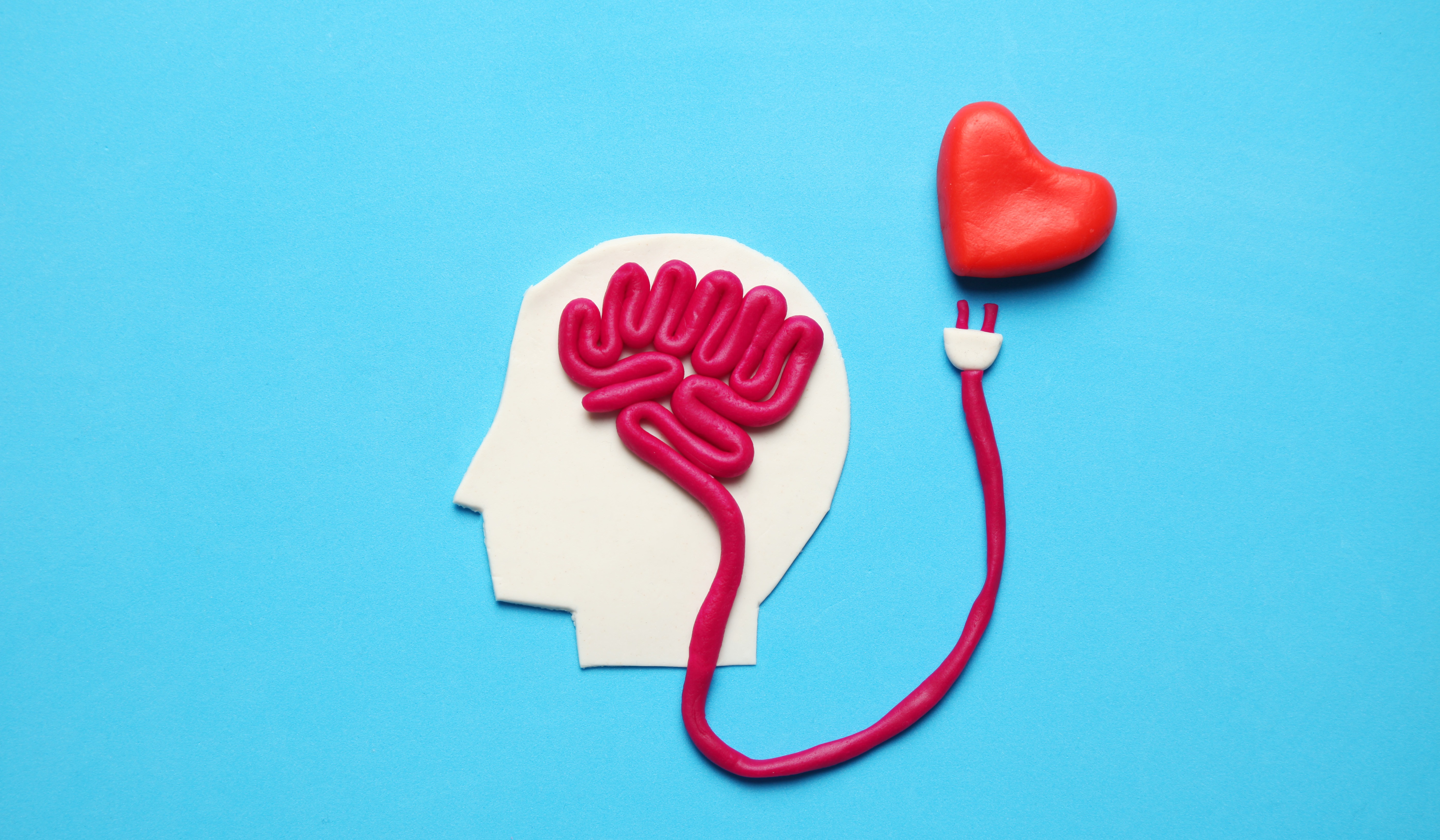The Art And Science Of Expressing And Recognising Emotions
“It is Friday afternoon, Victor is happy, counting down the hours to go to the beach for the weekend with his family, the first trip after months of restrictions. His boss, Alex, walks into the office, with the same look on his face as when he's furious, and tells Victor that the head office wants all the economic data for his project today, or they'll postpone it for a semester. Victor knows it takes 8 hours of work and he will not be able to go to the beach. Once again, work comes before family.
We have all experienced similar situations and we have asked ourselves what is better, to pretend that we have not been irritated or frustrated? Or to take the risk and say or do something that will make things worse? Both paths can have negative consequences.
Suppressing anger or frustration is useful in the short term. When it suits us, in order to avoid a difficult situation, we may decide not to share what we are feeling with the boss, and we verbally accept the change, postpone what interests us, and wait for better moments to negotiate our rights.
The body expresses what you have in your mind and between 65% and 93% of emotional information is transmitted through non-verbal communication; what we do not say with words communicates a large volume of information!
In conversations with other people, we are constantly sending and receiving emotional non-verbal signals, through facial expressions, voice and body language. The body does not ask for permission to show what we have in our heads.
The face is the most important emotional communication channel. Whether you are aware of it or not, your face reflects what you are feeling, even when you want to hide it, our micro expressions appear and give us away, no one can hide them.
In Victor's case, it is most likely that his boss has felt his discomfort, although Victor has not expressed it verbally, perhaps he has seen his frustrated face or simply his mirror neurons have captured Victor's emotionality.
From Victor's point of view, trying to permanently suppress the existence of emotion, is detrimental to our physical and mental health. Feeling angry or frustrated is a sign that something needs to change. Another danger of not facing emotions is to get stuck, ruminating, with obsessive repetitive thoughts that interfere with other types of thinking, your performance and your day-to-day life.
The three negative or uncomfortable emotions at work that most often cause dysfunctional and conflictive behaviours are frustration-anger, anxiety-fear, and disappointment-sadness.
Neuroscience provides us with techniques and tools to learn to manage them and express them appropriately based on the situation. The healthiest strategy is to develop emotional resilience, learn to control impulses and manage the intensity of emotions while remaining calm, learn to express emotions in an appropriate way according to each situation, avoiding behaviours that deteriorate relationships.
They are techniques that anyone can apply and practice, you just need the determination and the attitude of wanting to know yourself and manage yourself better.
Víctor's decision about not expressing his feelings has been influenced by recognising the ‘angry face’ of his boss. Primary emotions* produce specific changes in the body, voice and face, it is a biological reaction. The facial expression of each emotion is universal, regardless of age, culture, race, sex or religion, all humans express them the same.
Recognising emotions not only tells you what the person is feeling, but also their mental process. In the case of Alex's rage -high intensity rage- Victor can learn the following from his thought process:
- Your mind is processing an obstruction to your goals, the universal trigger for anger.
- His vision is focused on what has made him furious, he does not see anything else.
- Your attention is selective, your thinking only incorporates the information that justifies your anger (emotional bias).
- Your body is prepared for the confrontation.
The duration and intensity of the emotional state depends on each person, we all experience the same emotions, but each one experiences them differently; it is a subjective experience. In general, the sooner you get out of the emotional state, the better/ You are less likely to react inappropriately. Emotional agility is a skill that improves with practice.
Learning to recognise the emotions of others allows you to better understand them, respond appropriately and take care of your relationships. It also helps you successfully manage individual situations of conflictive behaviour.
How to learn to recognise emotions?
- Pay attention, observe. It seems obvious, but if you look at your phone or take your taking notes, you will miss relevant information.
- Learn the facial expression of each emotion
- Train for an hour to learn how to see micro-expressions
If you want to assess how good you are at interpreting emotions in others, you can complete the following quiz. It is useful and lots of fun.
https://greatergood.berkeley.edu/quizzes/ei_quiz/take_quiz
* primary emotions: joy, sadness, surprise, fear, anger, disgust
Watch Catalina’s Brain-Friendly Channel Session
When: Apr 11 2022 3PM GMT-6
Hosted: Ricardo González, LATAM President, About my Brain Institute
Guest: Catalina Pons, Consultant, Facilitator & Coach in emotional intelligence and neuroleadership
👇 Subscribe to our YouTube Channel!
- i4 Neuroleader (353)
- Leadership & Culture (328)
- Brain Health & Wellbeing (202)
- Innovation (97)
- Performance (85)
- Our News (79)
- Collaboration (68)
- Agility (53)
- Practitioner Stories (44)
- In The Press (36)
- Make Me A Leader (33)
- Balance (31)
- Integration (30)
- Imagination (29)
- Awareness (23)
- Brain-Friendly Channel (22)
- Communication (22)
- Curiosity (21)
- Inspiration (19)
- Intuition (19)
- Attitude (17)
- Courage (16)
- Adaptability (14)
- Case Studies (14)
- Drive (14)
- Brain-Friendly Leadership (13)
- Generosity (13)
- Ethics (9)
- Mental Readiness (9)
- Influence (8)
- Retreat (6)
- Brain-Friendly Leadership (1)
- Oracle Cards (1)
- 1 July 2025 (1)
- 1 June 2025 (2)
- 1 April 2025 (1)
- 1 March 2025 (8)
- 1 February 2025 (3)
- 1 September 2024 (4)
- 1 July 2024 (2)
- 1 June 2024 (6)
- 1 May 2024 (2)
- 1 April 2024 (3)
- 1 March 2024 (1)
- 1 November 2023 (1)
- 1 August 2023 (1)
- 1 July 2023 (2)
- 1 June 2023 (2)
- 1 May 2023 (4)
- 1 April 2023 (2)
- 1 March 2023 (7)
- 1 February 2023 (4)
- 1 January 2023 (1)
- 1 September 2022 (1)
- 1 May 2022 (3)
- 1 April 2022 (1)
- 1 March 2022 (5)
- 1 February 2022 (4)
- 1 January 2022 (4)
- 1 December 2021 (2)
- 1 November 2021 (4)
- 1 October 2021 (3)
- 1 September 2021 (6)
- 1 August 2021 (1)
- 1 April 2021 (1)
- 1 December 2020 (2)
- 1 November 2020 (1)
- 1 September 2020 (1)
- 1 August 2020 (1)
- 1 July 2020 (3)
- 1 June 2020 (4)
- 1 May 2020 (3)
- 1 April 2020 (4)
- 1 March 2020 (6)
- 1 February 2020 (4)
- 1 January 2020 (2)
- 1 December 2019 (3)
- 1 November 2019 (3)
- 1 October 2019 (5)
- 1 September 2019 (4)
- 1 August 2019 (4)
- 1 July 2019 (4)
- 1 June 2019 (5)
- 1 May 2019 (9)
- 1 April 2019 (9)
- 1 March 2019 (8)
- 1 February 2019 (7)
- 1 January 2019 (8)
- 1 December 2018 (5)
- 1 November 2018 (10)
- 1 October 2018 (16)
- 1 September 2018 (9)
- 1 August 2018 (10)
- 1 July 2018 (9)
- 1 June 2018 (8)
- 1 May 2018 (9)
- 1 April 2018 (9)
- 1 March 2018 (9)
- 1 February 2018 (8)
- 1 January 2018 (8)
- 1 December 2017 (6)
- 1 November 2017 (9)
- 1 October 2017 (9)
- 1 September 2017 (8)
- 1 August 2017 (10)
- 1 July 2017 (8)
- 1 June 2017 (8)
- 1 May 2017 (9)
- 1 April 2017 (8)
- 1 March 2017 (6)
- 1 January 2017 (3)
- 1 December 2016 (4)
- 1 November 2016 (5)
- 1 October 2016 (4)
- 1 September 2016 (2)
- 1 August 2016 (4)
- 1 July 2016 (4)
- 1 June 2016 (2)
- 1 May 2016 (3)
- 1 April 2016 (3)
- 1 March 2016 (7)
- 1 February 2016 (2)
- 1 January 2016 (5)
- 1 December 2015 (2)
- 1 November 2015 (2)
- 1 October 2015 (4)
- 1 September 2015 (2)
- 1 August 2015 (2)
- 1 July 2015 (1)
- 1 June 2015 (3)
- 1 May 2015 (4)
- 1 April 2015 (5)
- 1 March 2015 (3)
- 1 February 2015 (3)
- 1 January 2015 (3)
- 1 December 2014 (3)
- 1 November 2014 (3)
- 1 October 2014 (3)
- 1 September 2014 (5)
- 1 August 2014 (4)
- 1 July 2014 (5)
- 1 June 2014 (3)
- 1 May 2014 (1)
- 1 March 2014 (1)
- 1 December 2013 (2)
- 1 November 2013 (1)
- 1 July 2013 (1)
- 1 June 2013 (1)
- 1 May 2013 (3)
- 1 April 2013 (1)
- 1 March 2013 (2)
- 1 February 2013 (1)
- 1 January 2013 (2)
- 1 November 2012 (1)
- 1 October 2012 (1)
- 1 September 2012 (1)
- 1 August 2012 (2)
- 1 July 2012 (1)
- 1 June 2012 (1)
- 1 May 2012 (2)
- 1 April 2012 (1)
- 1 February 2012 (1)
- 1 January 2012 (1)
- 1 November 2011 (1)
- 1 October 2011 (3)
- 1 September 2011 (2)
- 1 July 2011 (1)
- 1 June 2011 (1)
- 1 May 2011 (1)
- 1 April 2011 (1)
- 1 March 2011 (1)
- 1 February 2011 (2)
- 1 January 2011 (4)
- 1 December 2010 (4)
- 1 November 2010 (3)
- 1 October 2010 (5)
- 1 September 2010 (4)
- 1 August 2010 (4)
- 1 July 2010 (3)
- 1 June 2010 (4)
- 1 May 2010 (7)
- 1 April 2010 (5)
Subscribe by email
You May Also Like
These Related Stories

Healing With The Brain In Mind - Part 1

How To Maintain A Healthy Brain



No Comments Yet
Let us know what you think